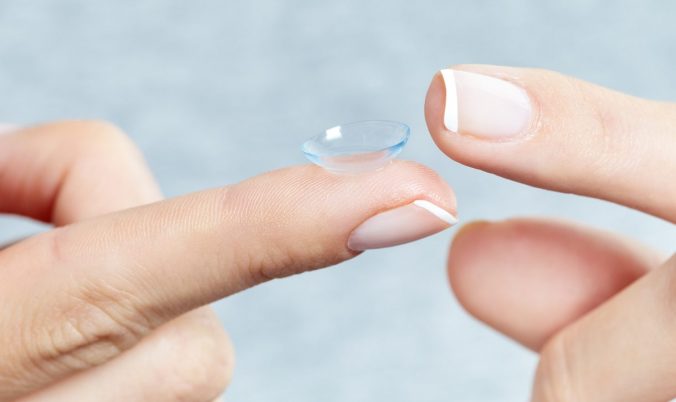Summary: There are certain specialized contact lenses that are made for those that suffer from age-related presbyopia and other conditions.
Multifocal contact lenses, not to be mistaken with bifocal contacts, are a specialized type of lenses that provide the power of glasses along with clear far and near vision. Thanks to advancements in technology, there are various types of multifocal contact lens options available, so how do you know which one is right for you?
This guide is designed to explain everything you need to know about multifocal lenses so you can make decide whether they fit your lifestyle.
What Are They?
Multifocal contacts are designed with different lens powers than your standard contacts. They regret vision at varying distances from the user. Essentially, they are contacts with multiple prescriptions all-in-one. This versatile lens benefits those that suffer from presbyopia by helping correct age-related vision problems.
How Are They Different from Bifocal Contacts?
Multifocal contacts have a gradual and smooth transition between the prescription for seeing things close up, the prescription for standard distance, and viewing objects far off in the distance. They act very much like progressive glasses. Bifocal contacts on the other hand, have a major difference between near and normal prescription areas.
What Types of Multifocal Contacts Lenses Are There?
Multifocal lenses come in either soft lenses or gas permeable. The most commonly used today are the concentric design. This specific type utilizes a set of concentric circles for various lens powers for different viewing distances. Also available to the public are blended designs, commonly known as aspheric, which places the close up and distance prescriptions near the middle of the eye in an attempt to simulate natural sight.
Choosing Multifocal Contacts
The most important thing you need to know when choosing your multifocal contacts is communicating with your optometrist. He or she needs to know about your lifestyle, hobbies, and activities that you partake in. Then, you will be given a set of options that cater to your specific needs. They may or may not include multifocal contacts, but Lens.com, an experienced contact lens supplier, recommends trusting your eye doctor as opposed to believing that you need a specific model of contacts and purchasing them outside of your optician’s recommendation. Doing so can cause irritation and even damage to your eyes.
The Bottom Line
Whether you’re looking into multifocal contact lenses or another type, it’s important that you discuss all your options with your eye doctor. He or she might see something different in your eyes and may recommend another model that’s better suited for you. However, it never hurts to inquire whether multifocal products could be an option for you.
